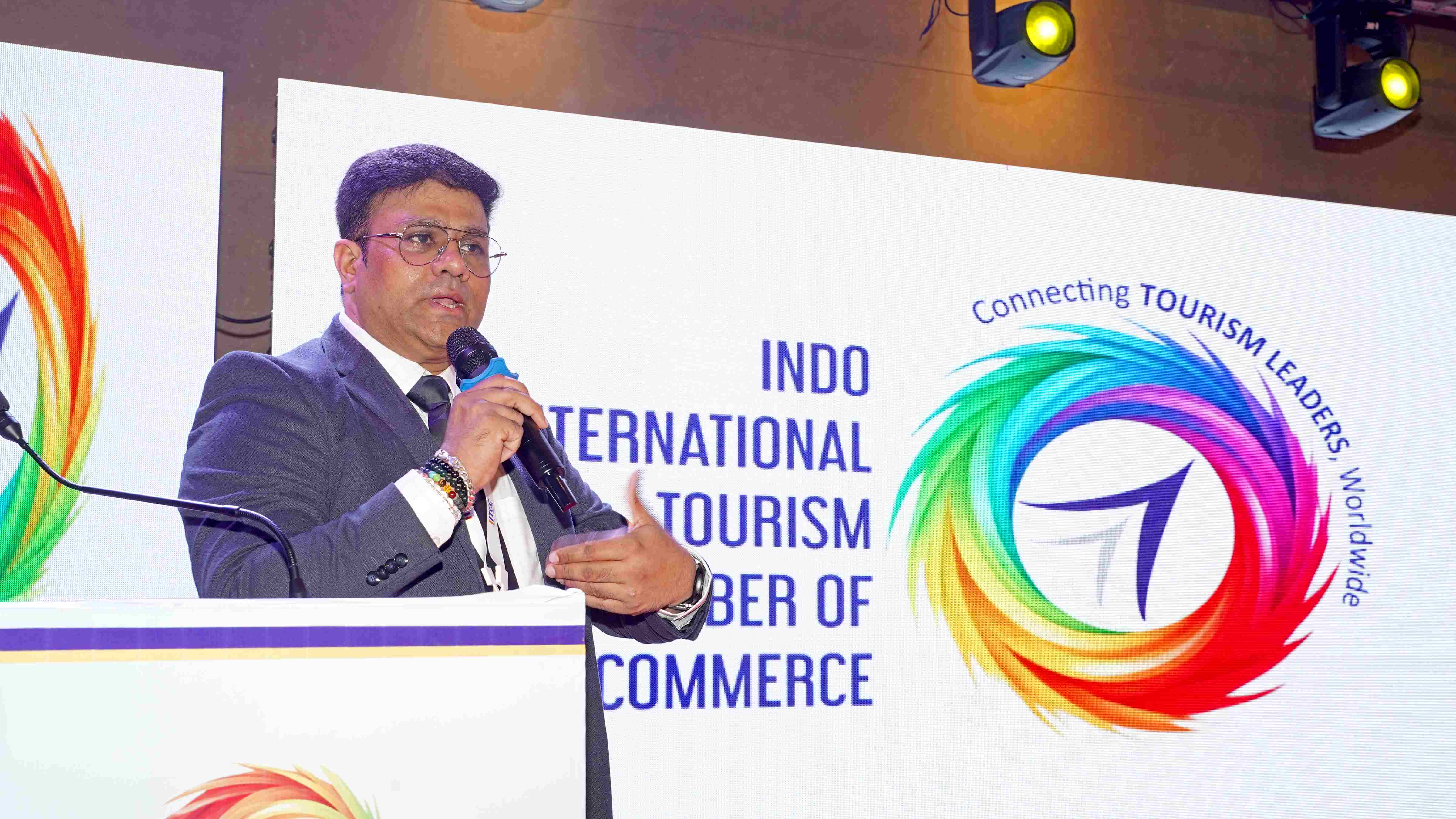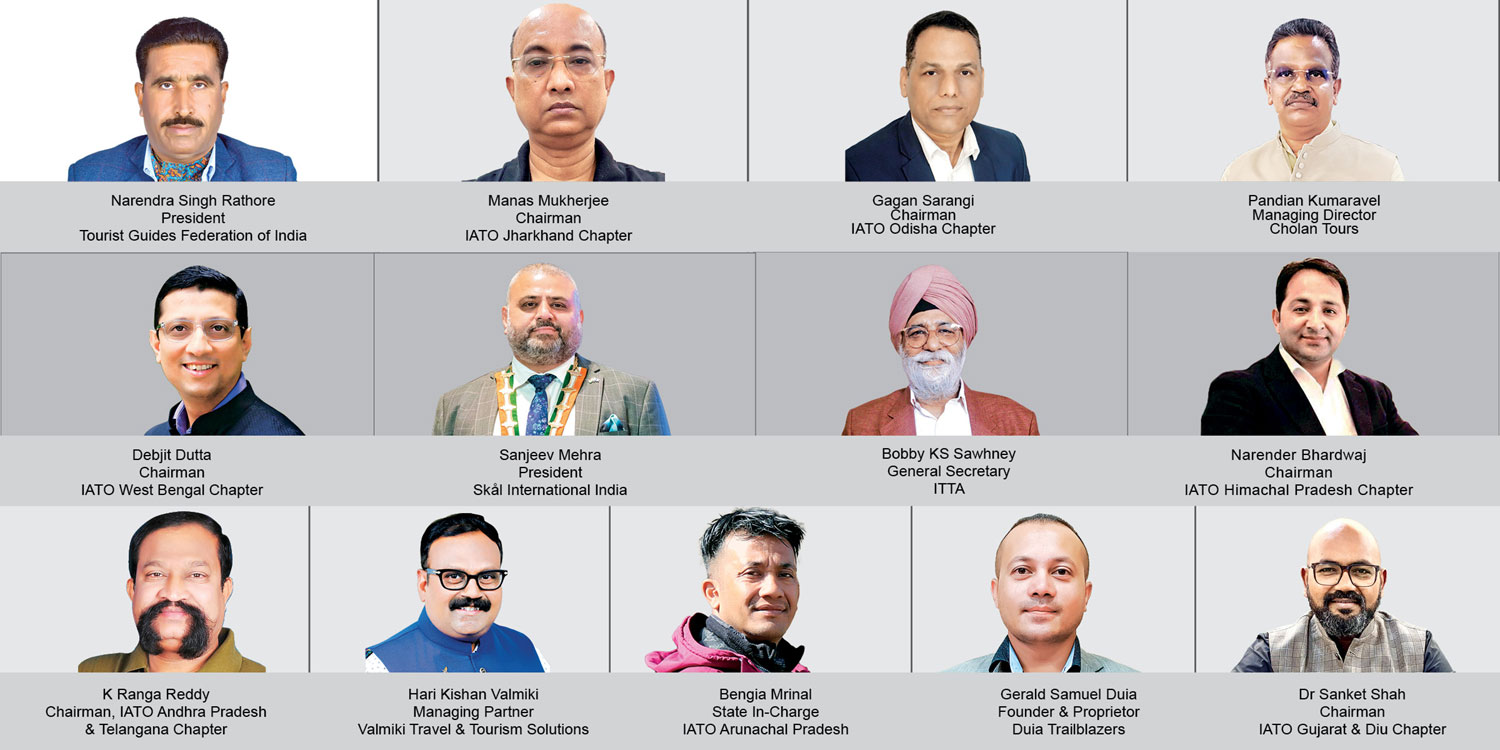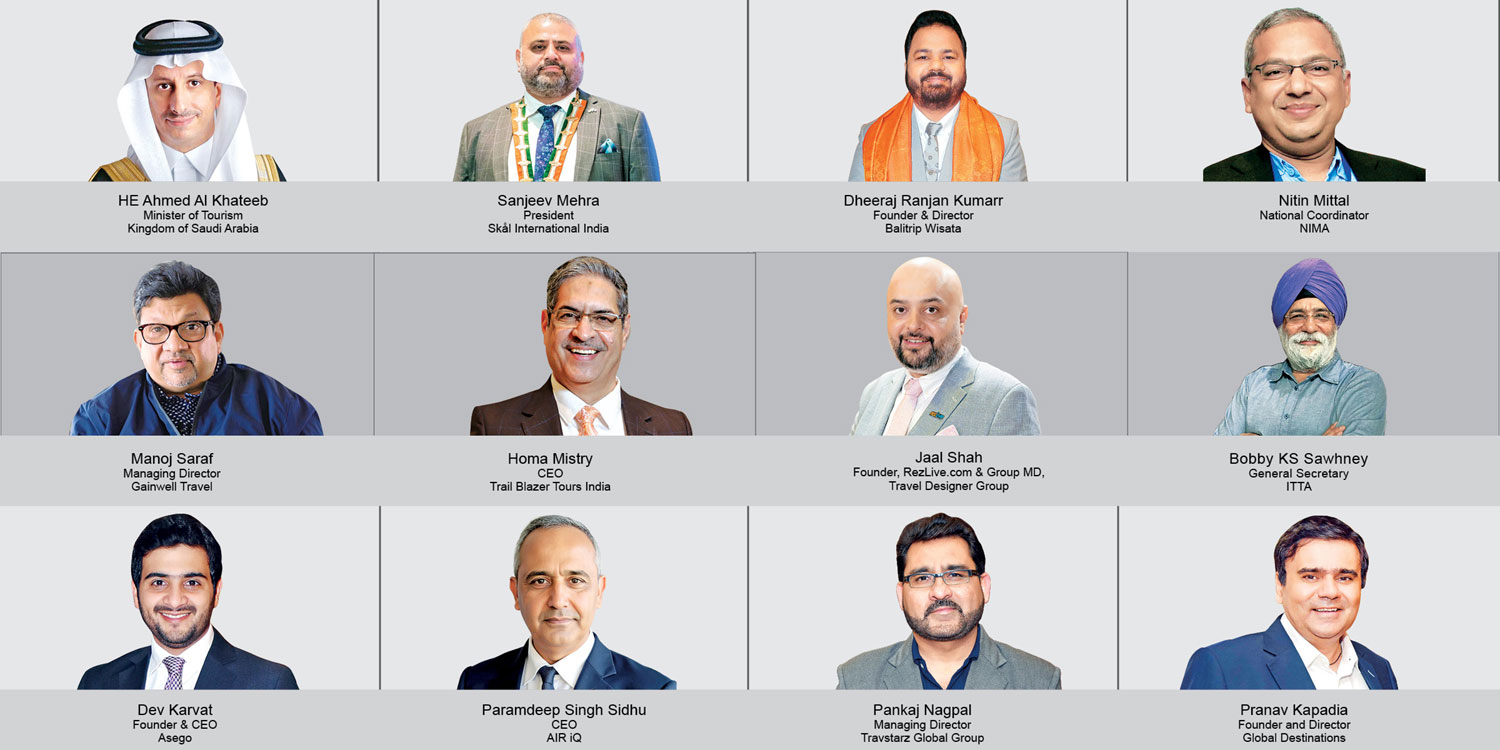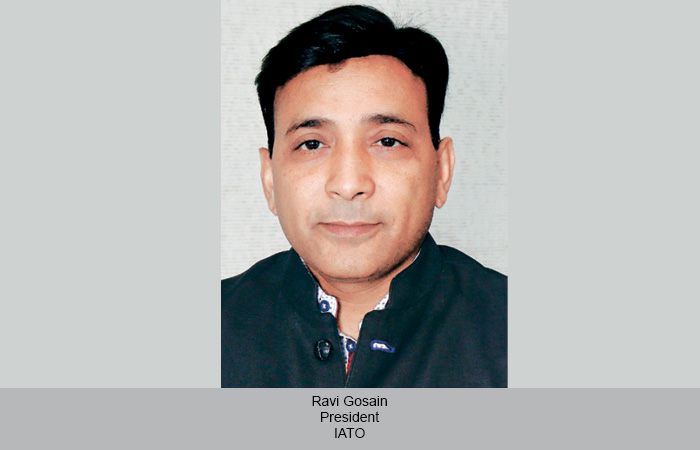In the foremost session of 3rd TRAVTALK Digital Conclave titled ‘The Reality of No Tourism’, panellists discussed the current scenario where inbound sector is witnessing zero billings and income, and facing the threat of survival.
At this gripping first session, focused on inbound tourism, panellists discussed the extent of damage done to the industry and how the government could help through some relief. A major shift in the marketing and destination-selling approach was also discussed apart from what inbound tourism will look like in the post-COVID-19 era. While there are a lot of expectations from the government, this may well be an opportunity for the industry to learn, not just dealing with crisis but preparing for a future crisis, and adapting to a changing world.
Rajeev Mehra, Vice President IATO
There is need from people to only work with government-approved travel agencies. Once everything normalises, IATO will start organising skill development programmes for its members. We are hoping for some relief from government soon. I expect this grave situation to get a little better in 3-4 months’ time once lockdown is lifted. IATO will definitely go forward and promote domestic tourism.
Bharat Bhushan Atree, Managing Director, Caper Travel Company
Sustainability is the biggest issue right now. There should not be a lot of expectation from the government. A lot of people will also look at consolidation in the industry. With new technology, new virtual reality products should be introduced. Right now, spending wisely should be the only smart plan B. Once the situation normalises, demand for 5-star hotels will shoot up because of increased need for hygiene.
Debjit Dutta, Director & CEO, Impression Tourism Services (India)
In the post-COVID world, there will be more travellers than tourists, and the industry needs tourists to survive. Lockdown has come as a form of opportunity for the industry to learn and adapt to a better world. For eastern India, the biggest opportunity will be cross-border tourism with East Asian countries. A lot of indirect support from the government is needed.
Tech-driven ‘new normal’ in hotels
At the second session of the Digital Conclave it was deduced that hospitality companies across the nation need to look at adopting technology for processes, while maintaining a balance with offering experiences and value to customers.
Nisha Verma
The second session of the 3rd edition of TRAVTALK Digital Conclave, titled ‘Hotels in the age of social distancing: Where are the robots?’ saw in attendance three big personalities from the hospitality industry covering various aspects of hotel business, while discussing the changes that the COVID-19 crisis has brought about. The panellists shared insights on what the post-COVID era would look like for hotels; focused on the education of manpower; and elaborated on operational aspects.
Mandeep Lamba, President – South Asia,HVS ANAROCK
We need to understand that this is a reality that can hit us again, and hence we need to be far better prepared the next time. The payments will continue to happen through credit cards, but we are going to have contact-less check-in and check-out over the phone. There are going to be permanent disruptors, and I believe that it is now the death of the front office.
Dilip Puri, Founder & CEO, Indian School of Hospitality
There is going to be a massive shift towards hotels making online learning for the workforce mandatory. If there is anything the industry can do to support its people, it’s to encourage them to build upon this habit and upskill themselves. The new normal is going to be so different. Encourage and invest in the workforce to help them upskill themselves to meet the challenges of the new normal.
Jatin Khanna, Market VP – North India, Bhutan and Nepal, Marriott
Today, one of the biggest problems of our industry is that we need to bring confidence back in our customers. Whenever the demand comes back, we need to ensure that our customers have complete confidence and faith in our hotels and brand in terms of safety. Today, it’s a work in progress for everyone. When it comes to technology, we couldn’t have been at a better stage than today.
Bringing home weddings & M!CE
Here’s an opportunity for India to shine as a wedding and M!CE destination, was the message at the final session of the Digital Conclave. The next step is for the stakeholders to ensure that the infrastructure is at the ready.
Hazel Jain
The third edition of the TravTalk Digital Conclave on May 15 also brought three experts together who deliberated on the topic titled ‘Big-ticket business: When do we start looking at weddings, corporate and M!CE travel?’ There can be no simple answer to this, of course. The readiness of not only the corporates but also the service providers such as hotels and event planners is a process. The Ministry of Tourism also wants travel to take centre stage with M!CE tourism as its component. For this to happen, protocols and SOPs have to be in place and every stakeholder has to be aware.
Rajeev Jain, Director, Rashi Entertainment
The last wedding we did was on February 29, 2020 in Udaipur. This situation is not that big of a problem for those who have cash reserves. These months are anyway an offseason for weddings. Business will definitely come back by November-December 2020, with a bang, and it will come back to India! We will promote Indian hotels and destinations first. The expense is not a problem as people have money to spend on weddings.
Rajdev Bhattacharya, GM, Global Travel & Hospitality Services and Way2go, Digital Operations & Platforms for Wipro
We need to change the narrative of the crisis. Corporates will not buy travel the same way as before, that’s for sure. To be able to cater to this, travel companies are definitely going to relook at the mix of people they will hire, depending on their skill sets. The entire travel industry is going to move to IT. They will also have to learn how to close deals on the phone.
Rajeev Kale, President & Country Head (Holidays, MICE, Visa) Thomas Cook (India)
We will see a lot of RFPs for exhibitions coming up and those who are armed to handle it well amidst COVID-19 will stand to win. Hyderabad, Jaipur, Kolkata and Mahabalipuram are great destinations for M!CE with good infrastructure. I believe that domestic luxury M!CE will bounce back and by the end of the year, short-distance M!CE
destinations in India will be in demand.
A detailed report on the Digital Conclave will be carried in June 1 issue of TRAVTALK.
 TravTalk India Online Magazine
TravTalk India Online Magazine




